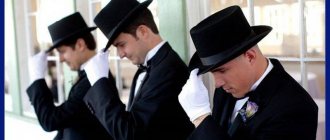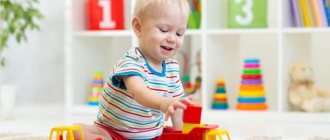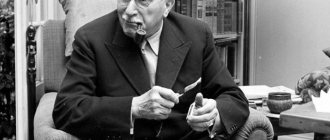The article explains:
- The essence of self-determination
- 3 types of self-determination
- Problems of personal and life self-determination
- Problems of professional self-determination of personality
- The relationship between self-determination and self-realization
The problems of personal self-determination in the modern world are that side of our reality that neither specialists nor ordinary people ignore. After all, this concerns everyone, and it is not necessarily a matter of choosing a future profession.
These problems are much deeper. And often, his entire future life depends on how well a person can cope with them. Here you can talk about a career, and about self-realization, and even about the ability to socialize in society.
The essence of self-determination
Self-determination is the process and result of a person’s choice of individual values, the determination of goals, opportunities, norms of behavior and criteria according to which a person forms an assessment of his own personality and achievements.
The process of self-determination in a mature person continues throughout his adult life. A person is looking for answers to the questions: who am I, why do I live, what can I achieve, what is my purpose, how can I help those who are dear to me, etc.
In the process of self-determination, a person forms the meaning of his existence, combining into one holistic system an understanding of himself and an idea of the world around him. Self-determination and self-awareness are different concepts; self-awareness does not mean that a person has moved to the next level and thought about what he is really capable of and what is required of him. The stages of self-determination and the very need for it depend on the person’s age, the system of social connections, the environment in which he is located (and how strongly the surrounding situation encourages such thoughts). In addition, personal qualities play an important role - the degree of motivation and readiness for action.
Problems of personal and life self-determination
Since the first two types of self-determination - personal and life - strongly interact with each other, the problems of these processes are common. It is no secret that personality traits and characteristics are formed throughout life, from birth. Some typical personality problems go back to childhood. Here are some of them.
- Everyone owes me / no one owes anyone anything
Adequate consciousness must be brought up from childhood within a clear framework of the relationship between duties and obligations. Relationships are built on the interconnection and balance of duty and responsibilities - they guide both a large society (the state), and a small one (for example, a family or a work team), and each individual. When this balance of duties and oughts is disturbed, problems arise.
Problems of professional self-determination of personality
Currently, the younger generation receives practically no information that will help with professional and social self-determination. Most educational institutions do not pay enough attention to this topic or do not raise it at all. As a rule, the entire analysis of such an important issue is limited to a few classes with an educational psychologist or in a professional training group.
However, such a short period is not enough to study individual preferences and abilities, and assess the personal qualities of adolescents. Then the situation develops like this: young people are forced to choose a higher or secondary educational institution for admission, thereby deciding on a profession. However, this choice, as a rule, does not occur consciously and reasonedly, based on a clear understanding of future activities, but under the influence of other factors.
A test that reveals problems in the subconscious:
- Pressure from parents
In such an important moment as choosing a future profession, the help of parents is invaluable - after all, they should know the interests and abilities of their child better than others. Alas, often this issue is not given much importance, and parents choose a profession independently based on their own idea of what will suit and please the child. It’s great if the choice is successful and the profession at least does not cause rejection. Alas, disagreements are often possible between the older and younger generations - for example, a mother-nurse will persistently advise her daughter to enroll in a medical school.
- Possible financial problems
Considering that recently the level of well-being and comfort has been steadily growing, it is not surprising that modern youth, unlike the older generation, pays much more attention to the quality of life. Boys and girls choose a profession based on possible financial benefits, and not on their own preferences and interests. For example, a teenager will choose advocacy or top management, realizing that this will bring high income in the future.
- Peer pressure
Any person needs confidence in the future, therefore, in addition to the above, the choice of profession is also influenced by the labor market. At different periods, some professions are in less demand, others - more and are considered prestigious or fashionable. This may be true, but you shouldn’t chase social status, for example, go to study to become an insurance expert, if you absolutely don’t have a passion for this profession.
Incorporation into culture is the key to success
Sociologists, educators and cultural scientists are actively researching the question of what factors influence human development, in addition to those already mentioned. It turned out that the influence of culture on personality development is invaluable. The artistic representation of reality shapes a person’s intellect, moral principles, attitudes, and feelings.
The spiritual influence of art on a person is specific; it enlightens, purifies the senses, sometimes causing so-called “catharsis”. In addition to the cleansing function of art on personality development, there is a compensatory function, that is, promoting the spiritual harmony of a person.
The influence of culture on personal development lies in gaining the ability to see the beauty around oneself, in the formation of emotional intelligence, in cultivating the skill of coherent and figurative expression of one’s thoughts. It broadens your horizons and enriches your inner world.
“The emotions of art are intelligent emotions,” - L. S. Vygotsky, psychologist, founder of cultural-historical theory.
The feelings and experiences gained when contemplating masterpieces confirm the influence of art on enriching a person’s relationship with the outside world, spiritually elevating a person. But for the correct perception of works of art and music, it is necessary to have an artistic and aesthetic understanding, that is, from childhood, constantly gain knowledge about culture and art, developing an aesthetic sense.
The influence of music on the development of a sense of beauty, especially classical music, which forms a vivid perception of harmonious sound, is important. People who create masterpieces of art also confirm with their talent that activity as a factor in personal development is very important, especially in what they love.
The relationship between self-determination and self-realization
In the process of personality formation, a person needs to go through the stage of self-determination - without this, self-realization is impossible. A person must realize his own purpose, learn to achieve his goals, realize his worth and find application for knowledge and skills.
Developing self-determination is a slow process. In order to quickly achieve self-determination and avoid problems in the modern world, it is necessary to develop thinking, learn to understand yourself, your emotions and needs, and study interaction with the environment. If a person thinks consciously and intelligently, it will not be difficult for him to correctly determine the goals he will strive for and realize his desires and needs - and this will be an excellent start on the path to self-determination in all areas of life.
Website editors
Seminar. Modern requirements for a preschool teacher: necessity and reality
Irina Arkhipova
Seminar. Modern requirements for a preschool teacher: necessity and reality
Department of Education of the Administration of Sergiev Posad Municipal District
Municipal budgetary preschool educational institution
"Combined kindergarten No. 35"
141300, Sergiev Posad, st. Vorobyovskaya 20,
tel. 8 (496)
540-24-15, fax 8
(496)
540-24-15
Seminar.
Modern requirements for a preschool teacher : necessity and reality .
Prepared by: Arkhipova I. E. - teacher.
September 2021.
“A teacher is a person
professionally taking over
responsibility for the development of another person.”
Sh. Amonashvili
At the present stage , taking into account the changing economic and political situation in the country, new requirements on the activities of educators.
A teacher working with children in a preschool organization is a person who, according to the content of his professional activity, must have a set of qualities that are not available to many.
Job responsibilities determine the scope of the teacher’s work. At the same time, O. A. Solomennikova Candidate of Pedagogical Sciences , Associate Professor, State Budgetary Educational Institution of Higher Education of the Moscow Region "Academy of Social Management"
Head of the Department of
, Russia Moscow, together with a group of teachers , believe that the process of interaction between teacher and student is a mutual, creative process, and cannot always be carried out according to a strictly defined plan. It requires a constant search for new ways of interaction between all participants in the educational process . The work of a teacher depends not only on the skills of the teacher , but also on the interests, knowledge, skills and mood of the children.
On October 18, 2013, the Minister of Labor and Social Protection of the Russian Federation M.A. Topilin signed Order No. 5444 “On approval of the professional standard “ Teacher ( pedagogical activity in the field of preschool , primary general, basic general, secondary general education ) (educator, teacher)
»».
The professional standard spells out “ the necessary skills (competencies that a modern preschool teacher ): to provide assistance to any child, regardless of his actual educational capabilities, behavioral characteristics, mental health status; to use psychological approaches in the practice of his work: cultural-historical, activity-based and developmental; carry out (together with a psychologist and other specialists)
psychological and pedagogical support of basic general education programs ; understand the documentation of specialists (psychologists, speech pathologists, speech therapists, etc.)
; draw up
(together with a psychologist and other specialists)
a psychological and
pedagogical characteristics ( portrait)
of the student’s personality; develop and
implement individual educational routes , individual development programs and individually oriented educational programs, taking into account the personal and age characteristics of students; master standardized methods of psychodiagnostics of personal characteristics and age characteristics of students; evaluate educational results : those formed in the taught subject and meta-subject competencies, as well as carry out (together with a psychologist)
monitoring of personal characteristics; to form child-adult communities.”
A number of regulatory documents clearly define the responsibilities of a teacher. These are documents such as:
-Order of the Ministry of Health and Social Development of the Russian Federation (Ministry of Health and Social Development of Russia)
dated August 26, 2010 N 761n Moscow “On approval of the Unified Qualification Directory of positions of managers, specialists and employees, section “Qualification characteristics of positions of
education ”
- Professional standard, approved by order of the Ministry of Labor and Social Protection of the Russian Federation dated October 18, 2013 N 544n;
-Federal state standard of preschool education , approved by order of the Ministry of Education and Science of the Russian Federation dated October 17 , 2013. No. 1155;
-job description;
-an employment contract concluded by the preschool teacher and the employer;
- sanitary and epidemiological rules and regulations SanPiN 2.4.1.3049-13.
preschool teacher will perform his duties .
The current stage of development of preschool education is characterized by a rapid pace of introduction of innovative technologies into the practice of kindergartens. Educational Standards (FSES) being put into practice
make certain
requirements for the structure of the general education educational areas identified in it (social-communicative, cognitive, speech, artistic-aesthetic and areas of physical development). And also, based on the interaction between an adult and a child, it is planned to build the educational process in kindergarten. Therefore, the requirements for the professional qualities of a teacher are being improved.
A new concept of “professional competence”
, which manifests itself in the ability to effectively carry out
pedagogical activities determined by job responsibilities, and is based on scientific education and an emotional and value-based attitude towards teaching activities . Professional competence presupposes that a preschool teacher has the necessary base of professionally significant attitudes and personal qualities, theoretical knowledge, professional skills that he will improve in the process of self-education .
Competence (from Latin competere – “to meet”
,
"suit"
):
1. personal ability of a specialist (employee)
solve a certain class of professional problems.
2. formally described requirements for the personal , professional, etc. qualities of a specialist (or for some group of specialists)
. In this understanding, competencies can be used in personnel assessment.
Competence (from Latin competens - “appropriate, capable”
):
1. a set of competencies, the presence of knowledge and experience necessary for effective activity in a given subject area.
2. the quality of a person who has comprehensive knowledge in any field and whose opinion is therefore weighty and authoritative.
Requirements for the personality of a modern teacher and his competence
In the context of the modernization of preschool education , the profession of a preschool teacher places more and more demands on those who are just about to receive it or are already working. Working with preschoolers requires adults to have personal maturity and flexibility, a creative approach and great patience. Every day, educators have to solve various and complex professional tasks, master and perform new functions demanded by modern society .
Today, every teacher needs to acquire and develop the following competencies that make him a creatively active participant in interaction with children:
• Humane pedagogical position ;
• Deep understanding of the tasks of preschool education ;
• The need and ability to take care of the ecology of childhood, to preserve the physical and spiritual health of children;
• Attention to the individuality of each child;
• Willingness and ability to create and creatively enrich a subject-developmental and cultural-information educational environment ;
• Ability to purposefully work with modern pedagogical technologies , willingness to experiment and implement them;
• The ability for self-education and conscious self-development of the individual, willingness to learn throughout the entire working life.
In a project called “Professional standard of a teacher ”
in clause 4.5.
the professional competencies of a preschool teacher (educator) are listed, reflecting the specifics of work at the preschool level of education .
According to this project a preschool teacher must :
Know the specifics of preschool education and the features of organizing educational work with children of early and preschool age .
Know the general patterns of child development in early and preschool childhood ; features of the formation and development of children's activities in early and preschool age .
Be able to organize the main types of activities in preschool age: object-manipulative and playful, ensuring the development of children. Organize joint and independent activities of preschoolers .
Master the theory and pedagogical methods of physical, cognitive and personal development of children of early and preschool age .
Be able to plan, implement and analyze educational work with children of early and preschool age in accordance with the Federal State for Preschool Education (FGET)
.
Be able to plan and adjust educational tasks (together with a psychologist and other specialists)
based on monitoring results, taking into account the individual developmental characteristics of each child of early and/or
preschool age .
Implement pedagogical recommendations of specialists (psychologist, speech therapist , defectologist, etc.)
in working with children who have difficulty mastering the curriculum or children with special
educational needs .
Participate in creating a psychologically comfortable and safe educational environment , ensuring the safety of children’s lives, preserving and strengthening their health, supporting the child’s emotional well-being during their stay in an educational organization .
To be proficient in methods and means of analyzing psychological and pedagogical monitoring , which allows one to evaluate the results of children’s mastery of educational programs , the degree to which they have developed the necessary integrative qualities of preschool necessary for further education and development in primary school.
Possess methods and means psychological and pedagogical education of parents (legal representatives)
children of early and
preschool age , be able to build partnerships with them to solve educational problems .
Possess ICT competencies necessary and sufficient for planning, implementing and evaluating educational work with children of early and preschool age .
What qualities should a teacher have?
The specifics of professional activity impose certain requirements on a preschool . And in order to fulfill his professional duties, he must have certain personality qualities. Here are some of them:
Professional orientation.
The basis of such personality quality as professional direction is interest in the teaching profession and love for children, pedagogical vocation , professional pedagogical intentions and inclinations. It is these factors that encourage the desire to master pedagogical knowledge and constantly improve their professional level.
Empathy.
This feeling is characterized by the ability to empathize and sympathize, to respond emotionally to the child’s experiences. preschool teacher , knowing the age characteristics of preschoolers , must carefully notice the slightest changes in the child’s behavior, show sensitivity, caring, kindness, and tact in relationships.
Pedagogical tact.
Tactfulness is a sense of proportion, which is manifested in the ability to observe the rules of decency and behave properly . When the teacher’s actions find the optimal combination of affection and firmness, kindness and exactingness, trust and control, humor and severity, flexibility of behavior and educational actions, we can talk about the teacher’s tact.
Along with being demanding of participants in the educational process (children, parents, colleagues)
preschool teacher remains friendly towards them and believes in their strengths and capabilities.
Pedagogical optimism .
The basis of pedagogical optimism is the teacher’s faith in the strengths and capabilities of each child. preschool teacher who loves children is always tuned to perceive their positive qualities. By creating conditions for the manifestation of the abilities of each child, the teacher helps the preschooler . An optimistic teacher will not talk badly about the child or complain to parents about him. An optimistic teacher is characterized by the ability to inspire, cheerfulness, and a sense of humor.
Culture of professional communication.
preschool teacher must be able to build proper relationships with children, parents, colleagues, that is, with all participants in the pedagogical process .
Firstly, have a high cultural level and impeccable behavior. Children are good imitators
, it is the behavior of the teacher that they imitate in the first place.
Secondly, try to establish partnerships with parents, be able to prevent and resolve conflict situations.
Thirdly, treat colleagues with respect and attention, exchange experiences, and accept criticism.
Pedagogical reflection.
The success of a teacher’s professional activity largely depends on the ability for pedagogical Reflection implies the ability to analyze the steps taken, evaluate the results obtained and compare them with the planned goal. Based on the findings, the preschool adjusts subsequent activities in order to obtain better results.
Authority.
Parents' trust is the first step towards gaining authority. To enjoy authority among children, parents and colleagues means to receive appreciation of one’s moral qualities, culture, erudition, and dedication to the profession. The ability to fight for your authority, value it, and support the authority of parents and colleagues is given only to a teacher who is dedicated to his work.
Among the necessary personality traits of a teacher, one can also highlight: conscientiousness, self-demandingness , initiative, patience and endurance. It’s good if a preschool teacher knows how to make crafts , draw, sing well, and has acting skills. In this case, he will always be interesting to his students. Not the least role belongs to the appearance of the teacher. Children like teachers who are charming, neat, have a fashionable hairstyle and dress stylishly.
Thus it can be noted that a modern teacher today needs special professional training.
preschool teacher must master the latest technologies in the field of teaching and raising children, as well as have broad erudition, pedagogical intuition , highly developed intelligence and a high level of moral culture.
The world is changing, children are changing, which, in turn, puts forward new requirements for teacher qualifications . But one cannot demand from a teacher what no one has ever taught him. Consequently, the introduction of a new professional standard for a teacher should inevitably entail a change in the standards of his training and retraining in higher education and in advanced training centers. Expanding the boundaries of a teacher’s , the professional standard simultaneously increases his responsibility for the results of his work, placing demands on his qualifications , offering criteria for its evaluation.
Bibliography:
1. Verbitsky A. A. Personal and competency-based approaches in education : problems of integration / A. A. Verbitsky, O. G. Larionova. – M.: Logos, 2013.- 336 p.
2. Grishina I.V. Professional competence of a school leader as an object of research: Monograph. St. Petersburg: SPbGUPM, 2002. – 232 p.
3. Mitina L. M. psychology of work and professional development of teachers: Textbook. aid for students Higher ped. textbook establishments. – M.: Publishing House
, 2004. – 320 p.
4. Solomennikova O. A. Professional competence of a teacher-preschool educational institution : theoretical aspect.
5. Strategy for modernizing the content of general education (2001)
6. Order of the Ministry of Labor on approval of the professional standard “ Teacher ( teaching activities in the field of preschool , primary general, basic general, secondary general education ) (educator, teacher)
».











